Modelling and simulation
Modelling and simulation of electrical energy systems
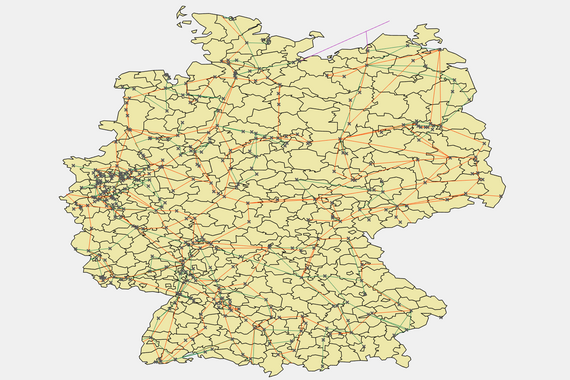
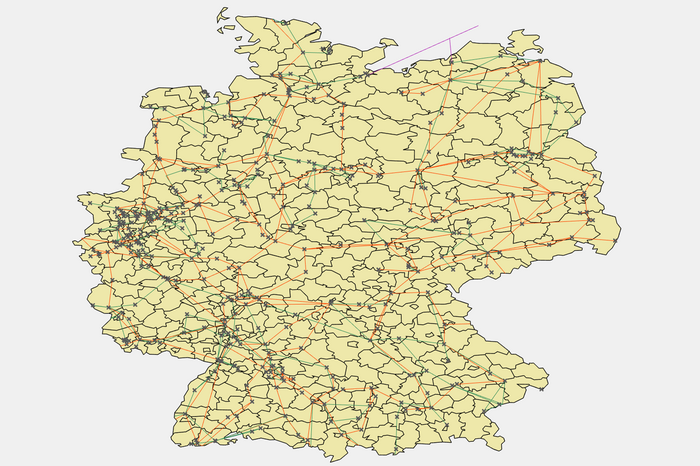
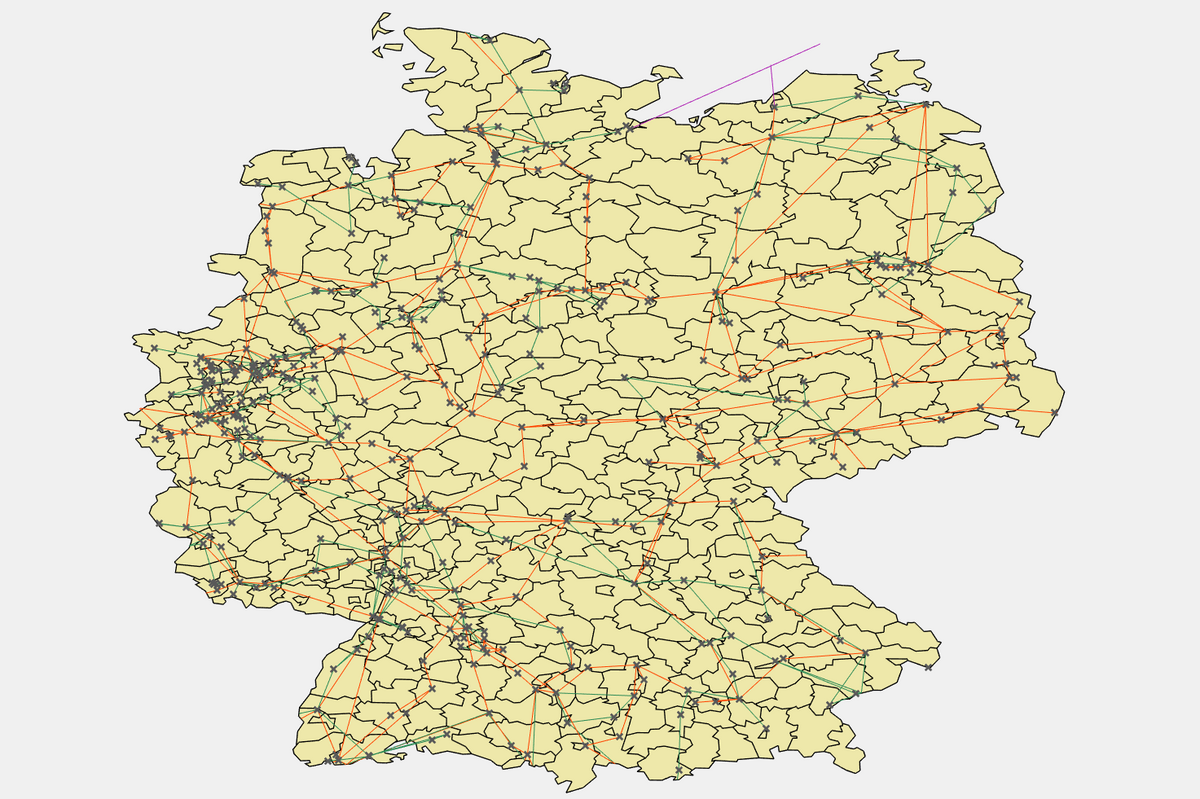
- Modelling of conventional and modern equipment and controllers in electrical power supply systems for stationary operating conditions as well as for RMS and EMT simulations
- Development of freely parameterisable integrated transmission and distribution network models based on synthetic distribution network models
- Investigation of stationary system states
- Quasi-stationary simulations of extensive energy supply networks (RMS simulations)
- Transient simulations of the electrical energy system (EMT simulations)
- Efficient simulation of electrical energy systems using empirical as well as mathematical order reduction methods
Optimisation of network planning and system operation

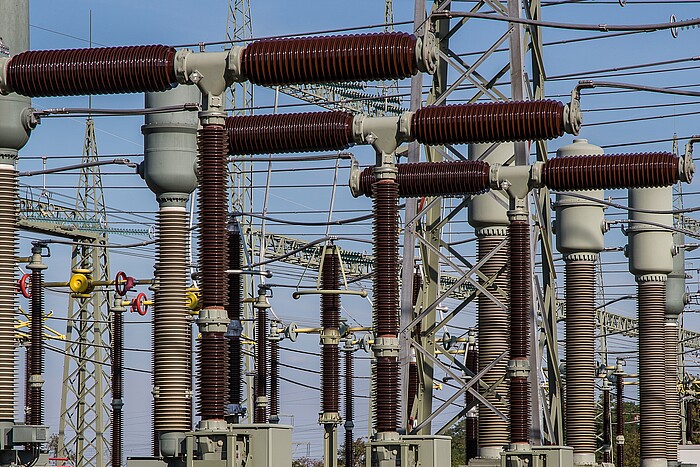
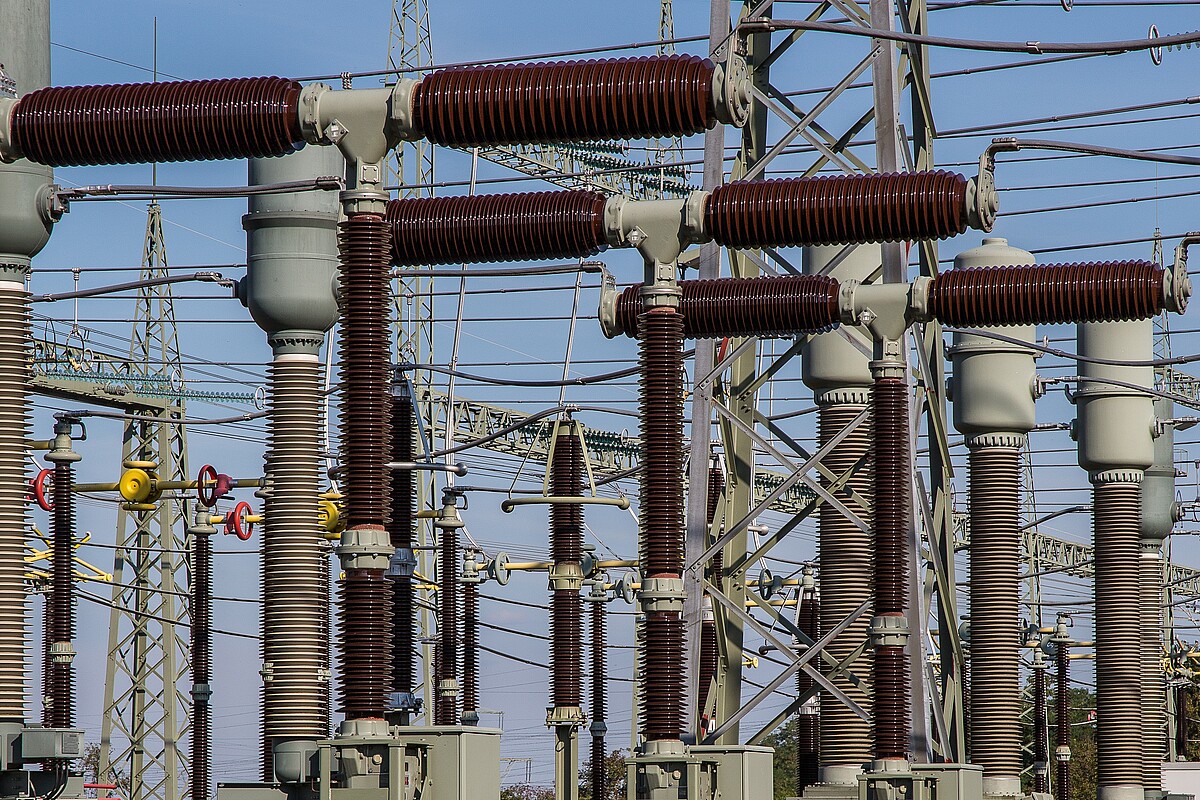
- Modelling, approximation, convexification, relaxation and solution of linear, quadratic and generally non-linear optimisation problems in the field of electrical power supply, taking into account various objective functions and constraints as well as mixed-integer variables and discrete decision logic
- Power plant deployment and redispatch optimisation in energy and balancing power markets, economic optimisation of balancing power activation
- Security Constrained Optimal Power Flow taking into account the switching states of lines, transformers
- Optimised network planning for distribution networks
- Development of short, medium and long-term cost-optimised network expansion strategies, taking into account future supply expenditures and existing network infrastructure cross-voltage level network planning in the high and medium voltage level
- Development of innovative planning concepts to reduce the need for conventional grid expansion
- Location optimisation of substations
Frequency control and grid control cooperation



- Frequency stability with investigation of frequency control in power grids under the challenge of an increasing displacement of conventional thermal power plants and an increased penetration of volatile feed-in from renewable energies via inverters
- Simulation of frequency control and control power provision in the grid control cooperation under consideration of congestion management
- Economic optimisation of balancing power activation
Electricity market simulation



- Modelling and simulation of the continental European interconnected grid in an integrated grid and energy market simulation
- Assessment and evaluation of technical and economic influences and their effects on the European electricity market
- Evaluation of the transmission networks for current and future expansion, generation and load scenarios
- Planning of grid expansion measures taking into account current forecasts for the development of the European interconnected grid and deriving recommendations for action
Short circuit current calculation



- Influence of power electronic equipment/generating installations on the short-circuit current level, the short-circuit current characteristics and the short-circuit current time curve
- Analysis of the effects on the application of the short-circuit standard IEC 60909 and on the simplified calculation of the short-circuit current characteristics described therein using factors and the central characteristic Initial short-circuit alternating current
Harmonics and network resonance analysis
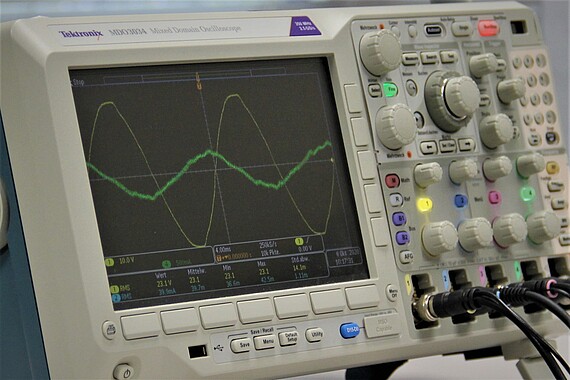
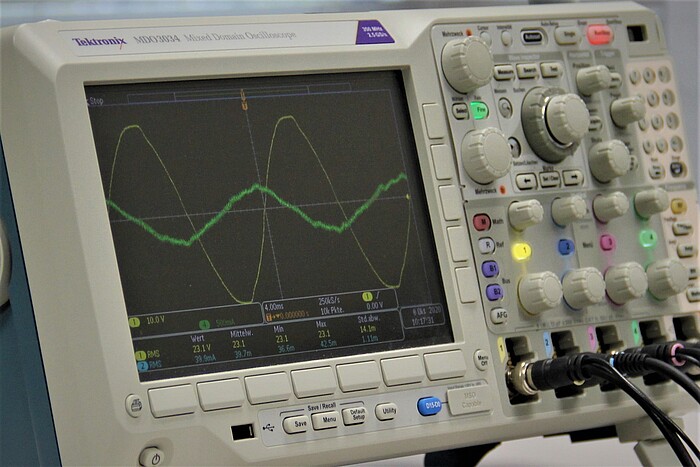
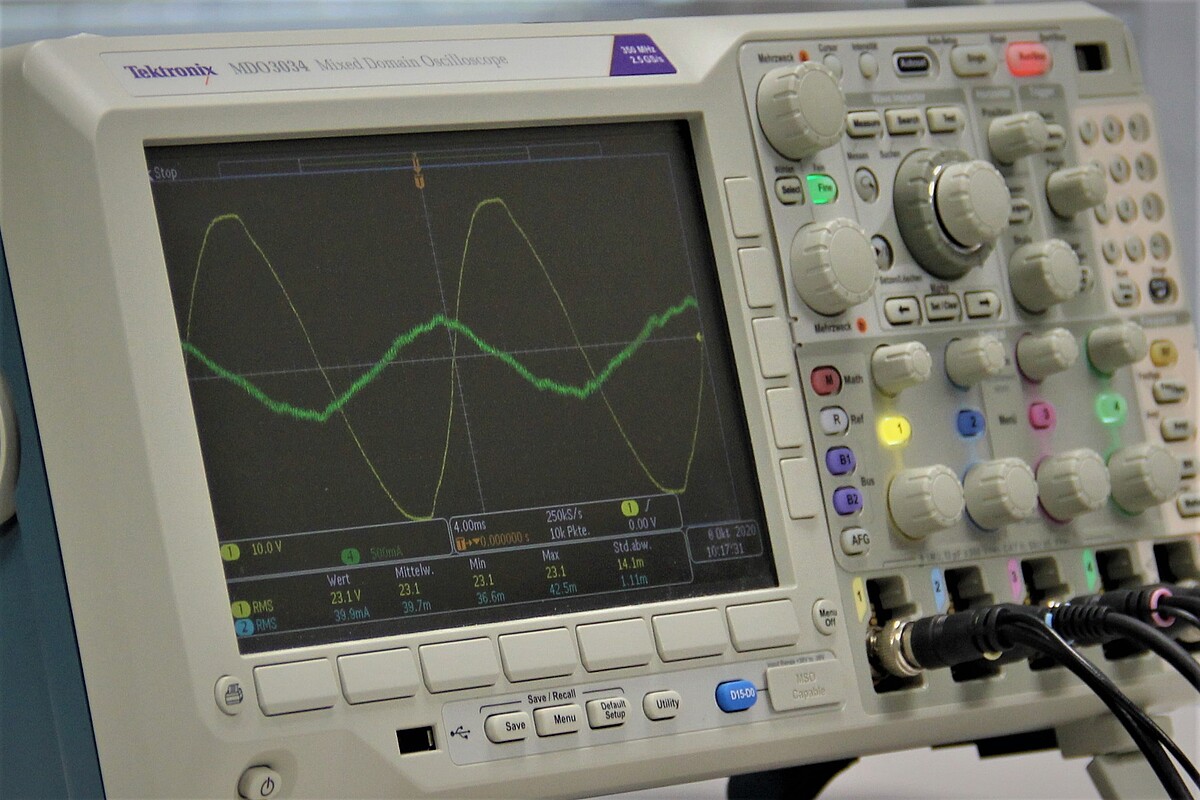
- Resonance mode analysis (RMA): Calculation of parallel and series resonances in power networks with the associated participation factors and sensitivity analysis
- Allocation of harmonic current levels and voltage levels according to IEC and VDE
- Analysis of the effects of grid expansion on the resonance behaviour of the electricity grids and the allocation of harmonic current levels and voltage levels
Grid integration of converter systems



- Investigation and evaluation of grid-following, grid-forming and grid-supporting converter control concepts
- Calculation and analysis of harmonic stability in electrical energy systems
- Stability studies and assessment of stability improving measures by means of RMS and EMT simulations
- Synchronisation techniques of converter systems for symmetrical and asymmetrical operating states
- Development of control concepts for Fault Ride Through (FRT)
Network and system impact of e-mobility



- Analysis and evaluation of simultaneity and properties of charging profiles according to vehicle models
- Integration of electric vehicles in the distribution networks
- Investigation and development of load management with regard to network-related loading
- Assessment of the need for network reinforcement and expansion
- Analysis of the possibilities of grid-compatible combination with renewable energies
- Forecasting network utilisation and harmonic load due to increasing integration of charging infrastructure in distribution networks
Contact


Prof. Dr.-Ing. habil. Lutz Hofmann
Professors


Prof. Dr.-Ing. habil. Lutz Hofmann
Professors


























